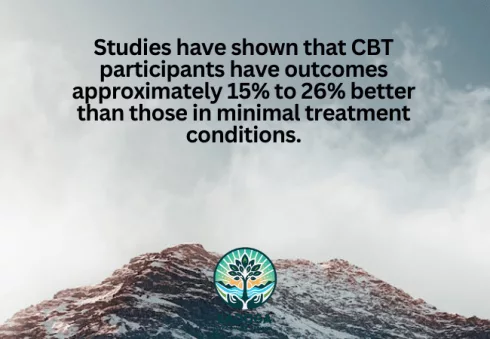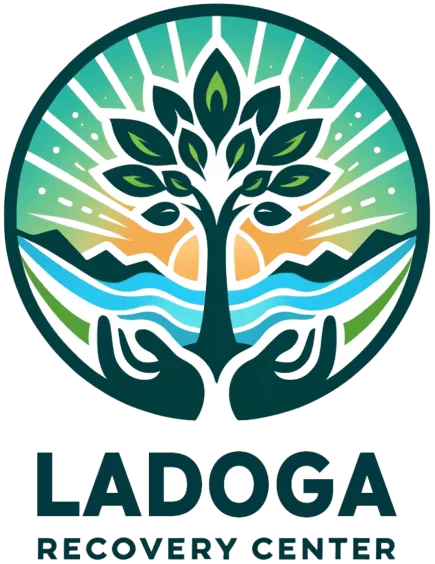Overcoming addiction isn’t just about quitting substance use—it’s about changing deeply ingrained thought patterns, emotional responses, and behaviors that contribute to addiction. Cognitive-Behavioral Therapy (CBT) is one of the most effective therapeutic approaches for addiction recovery, helping individuals identify and modify negative thinking, develop healthy coping mechanisms, and build long-term strategies for maintaining sobriety.
At Ladoga Recovery Center, we integrate CBT techniques into our treatment programs, including our Detox Treatment Program, Residential Treatment Program, Inpatient Treatment Program, and Substance Abuse Treatment Program. Whether you are recovering from Meth, Cocaine, Marijuana, or Benzo addiction, CBT provides valuable tools to help you regain control of your life and prevent relapse.
In this comprehensive guide, we will explore:
- How CBT works and why it’s effective for addiction treatment
- Core CBT techniques that help individuals overcome substance use
- How CBT addresses relapse prevention and emotional triggers
- New Section: Combining CBT with Other Therapies for Holistic Recovery
How Cognitive-Behavioral Therapy (CBT) Works in Addiction Treatment
CBT is a structured, goal-oriented form of therapy that helps individuals recognize harmful thought patterns and behaviors that contribute to addiction. Unlike some other forms of therapy that focus on past experiences, CBT is focused on present-day thoughts and actions, making it highly effective in addiction treatment.
Why is CBT Effective for Addiction Recovery?
- Identifies and Restructures Negative Thought Patterns
- Addiction often involves self-destructive thinking, such as:
- “I’ll never be able to quit.”
- “One drink or one hit won’t hurt me.”
- CBT helps individuals challenge these beliefs and replace them with healthier, reality-based thoughts.
- Addiction often involves self-destructive thinking, such as:
- Develops Practical Coping Strategies
- Many individuals turn to substance use as a way to cope with stress, anxiety, or trauma.
- CBT teaches alternative coping mechanisms, such as mindfulness, deep breathing, and positive self-talk.
- Breaks the Cycle of Automatic Reactions
- Instead of reacting impulsively to triggers, CBT helps individuals pause and make healthier choices.
- Improves Emotional Regulation
- Addiction is often linked to emotional dysregulation. CBT helps individuals manage emotions without turning to substances.
- Addresses Underlying Mental Health Disorders
- Many individuals struggling with addiction also suffer from anxiety, depression, or PTSD.
- CBT provides tools to manage these conditions without self-medicating.
Core CBT Techniques Used in Addiction Recovery
1. Cognitive Restructuring (Reframing Negative Thoughts)
Purpose:
- Helps individuals identify, challenge, and replace distorted thoughts that fuel addiction.
How it works:
- Write down negative thoughts when they arise.
- Identify the cognitive distortion (e.g., catastrophizing, black-and-white thinking, overgeneralization).
- Replace negative thoughts with rational, evidence-based alternatives.
Example:
- Negative Thought: “I can’t handle stress without using.”
- Cognitive Restructuring: “I have handled stress before, and I can develop new ways to cope.”
2. Behavioral Activation (Replacing Negative Behaviors with Positive Ones)
Purpose:
- Helps individuals engage in meaningful, healthy activities that replace substance use.
How it works:
- Identify positive activities that provide fulfillment (e.g., exercise, creative hobbies, volunteering).
- Schedule these activities into daily routines.
- Track mood improvements and adjust strategies as needed.
Examples:
- Going for a walk instead of drinking
- Calling a friend instead of using drugs
- Practicing meditation instead of engaging in negative self-talk
3. Exposure Therapy for Triggers
Purpose:
- Reduces cravings and anxiety related to triggers (people, places, or situations associated with substance use).
How it works:
- Individuals gradually expose themselves to mild versions of their triggers while practicing coping strategies.
Example:
- If someone used to drink at a certain bar, they might practice walking by it without going inside.
4. Mindfulness and Stress Reduction
Purpose:
- Helps individuals stay present, manage stress, and reduce impulsive reactions.
How it works:
- Practice breathing exercises, guided meditation, and progressive muscle relaxation.
- Observe thoughts and emotions without judgment.
Example Mindfulness Exercise:
- When craving arises, take five deep breaths, acknowledge the thought, and let it pass without acting on it.
5. Problem-Solving Therapy (PST)
Purpose:
- Helps individuals develop structured solutions for real-life challenges that could lead to relapse.
How it works:
- Identify a specific problem (e.g., financial stress, social pressure).
- Brainstorm multiple possible solutions.
- Choose the best course of action and implement it.
Example:
- Problem: Feeling isolated in recovery.
- Solutions: Join a support group, reconnect with old friends, attend sober social events.

Combining CBT with Other Therapies for Holistic Recovery
While CBT is highly effective, addiction recovery is most successful when multiple therapeutic approaches are combined.
1. CBT + Motivational Interviewing (MI)
- Purpose: Helps individuals find internal motivation to change.
- How it helps:
- Focuses on building confidence and commitment to recovery.
- Encourages individuals to set realistic, achievable goals.
2. CBT + Dialectical Behavior Therapy (DBT)
- Purpose: Focuses on emotional regulation and distress tolerance.
- How it helps:
- Helps individuals manage intense emotions without relapsing.
- Uses mindfulness and coping strategies to handle stress in healthier ways.
3. CBT + Group Therapy
- Purpose: Provides peer support and shared experiences.
- How it helps:
- Allows individuals to learn from others in recovery.
- Strengthens accountability and social connections.
4. CBT + Family Therapy
- Purpose: Heals relationships and educates family members on addiction.
- How it helps:
- Reduces family conflicts and improves communication.
- Helps families set healthy boundaries and support recovery goals.
Why Choose Ladoga Recovery Center?
At Ladoga Recovery Center, we understand that addiction recovery requires more than just detox—it requires a complete transformation of thought patterns, behaviors, and emotional responses. That’s why we integrate Cognitive-Behavioral Therapy (CBT) into our treatment programs, helping individuals build the skills needed to achieve lasting sobriety and emotional stability.
1. Comprehensive, Evidence-Based Treatment Programs
We offer a full continuum of care, ensuring individuals receive the appropriate level of support:
- Detox Treatment Program – A medically supervised environment for safe withdrawal.
- Residential Treatment Program – Structured, immersive care to build recovery skills.
- Inpatient Treatment Program – Intensive support for individuals facing severe addiction.
- Substance Abuse Treatment Program – Individualized plans for overcoming substance use disorders.
- Meth, Cocaine, Marijuana, and Benzo Addiction Treatment – Specialized therapies for different substance dependencies.
2. CBT-Focused Approach to Recovery
We believe that changing thought patterns is key to preventing relapse. Our CBT-based therapy programs help individuals:
- Recognize and challenge negative thoughts that fuel addiction.
- Develop healthy coping strategies for stress, anxiety, and emotional regulation.
- Strengthen relapse prevention techniques to sustain long-term recovery.
3. A Team of Compassionate Experts
Our licensed therapists, medical professionals, and addiction specialists are dedicated to guiding individuals through their recovery journey with personalized, compassionate care.
4. Long-Term Support and Aftercare
Recovery is a lifelong journey. We provide:
- Relapse prevention planning to help individuals stay on track.
- Alumni programs and peer support networks for continued encouragement.
- Ongoing therapy and aftercare services for lasting emotional and mental well-being.
At Ladoga Recovery Center, we are committed to helping individuals not only overcome addiction but also build fulfilling, substance-free lives.
Conclusion
Addiction can feel overwhelming, but change is possible with the right tools and support. Cognitive-Behavioral Therapy (CBT) provides a proven, structured approach to breaking free from addiction, rewiring thought patterns, and developing healthy habits for a successful, substance-free life.
At Ladoga Recovery Center, we believe in empowering individuals to take control of their recovery through expert care, evidence-based therapies, and a supportive community. Call us now 844.628.4917 to learn how CBT and our specialized addiction treatment programs can help you or your loved one. No matter where you are in your journey, we are here to help.
FAQs About CBT in Addiction Recovery
Can CBT be used for all types of addiction?
Yes! CBT is highly effective for Meth Addiction Treatment, Cocaine Addiction Treatment, Marijuana Addiction Treatment, Benzo Addiction Treatment, and other substance use disorders.
How long does CBT take to work?
Many individuals notice improvements in thought patterns, stress management, and coping skills within a few weeks.
Can I practice CBT on my own?
Yes! Keeping a thought journal, using problem-solving strategies, and practicing mindfulness daily can reinforce CBT skills outside of therapy.
Does CBT prevent relapse?
CBT provides long-term relapse prevention strategies, helping individuals develop awareness of triggers and build healthy coping mechanisms.
Is CBT available at Ladoga Recovery Center?
Yes! CBT is a core component of all our addiction treatment programs to ensure individuals develop the skills needed for lasting recovery.

